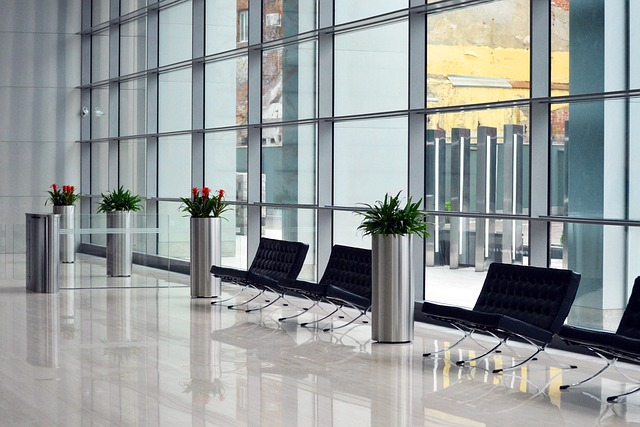Navigating the commercial leasing landscape in New York City can be a daunting task, even for the most experienced business owners. With countless factors to consider and potential pitfalls to avoid, it’s crucial to arm yourself with the knowledge and strategies necessary for successful lease negotiations. This comprehensive guide will help you navigate the complex world of commercial lease review in NYC, empowering you to secure the best possible terms for your business and ensure a prosperous future in the Big Apple.
Key Takeaways
- Understand key components of a commercial lease agreement for better negotiation.
- Negotiate personal guarantees, exclusive use clauses and CAM costs to protect business interests.
- Consider terms regarding default provisions, damage & destruction clauses for security & flexibility.
- Hire a lawyer.
Understanding the Key Components of a Commercial Lease Agreement
A commercial lease agreement is a legally binding contract between a landlord and tenant, outlining the lease terms and conditions for renting a commercial space. Grasping the fundamental aspects of a commercial lease is instrumental in negotiating better terms while also unveiling potential risks.
Commercial leases differ from residential leases in several ways, most notably in their complexity and their potential for negotiation. As a business owner, you need to carefully evaluate critical aspects of many commercial leases, such as rent provisions, responsibility for improvements and repairs, subleasing rights, renewal options, and breach of contract terms when comparing them to a residential lease.
For instance, when assessing the rent provision, you should consider operational costs like electricity, trash removal, water, and real estate taxes, and how they will be allocated between the tenant and landlord.
A thorough commercial lease review and immediate possession of the space, initiating rent payment, could enhance your prospects of obtaining the most affordable base rent. Additionally, consulting with an attorney experienced in commercial leasing can help ensure that the lease is beneficial for your business and that any restrictions are not violated.
Personal Guarantees and Their Negotiation

Personal guarantees are often required by landlords in commercial leases, especially for small business owners. A personal guarantee is a contractual requirement that stipulates the lease must be personally guaranteed by an individual, typically the principal of the LLC or corporation, who would be held liable for any rent and other payments due on the lease should the tenant fail to remit them.
Adjusting the terms of personal guarantees can shield the tenant’s interests while reducing potential liabilities. One popular form of personal guarantee is the Good Guy Guarantee, which is a personal assurance that the signatory of the lease will be responsible for rent payments during their occupancy of the space. In the event of a breach of the lease, the Good Guy Guarantor is only obligated to pay for rent up until the point of the breach, provided that all other conditions are met, such as being current on rent, returning the keys, and leaving the premises in satisfactory condition.
An experienced broker can be an invaluable asset during lease negotiations, providing expert data and bargaining power. By understanding the intricacies of personal guarantees and their negotiation, you can ensure that your business is safeguarded from potential financial liabilities arising from a commercial lease. Bringing on a lawyer who has experience handling leases and lease negotiations is the best way to protect your business and help prevent the common mistakes that appear when business owners attempt to navigate this landscape on their own.
Protecting Your Business from Competitors

In the current competitive business environment, measures to shield your business from competitors are necessary. One effective strategy is to negotiate a provision in the lease agreement that prohibits the landlord from leasing nearby spaces to direct competitors.
An exclusive use clause is a powerful tool that grants the tenant the exclusive right to use and occupy the leased property for a specific purpose or business activity, preventing the landlord from leasing to another tenant who would engage in the same or similar type of business within the same property or shopping center. This not only safeguards your business from competitors but also ensures that your business is not in direct competition with others in the same location.
Navigating Common Area Maintenance Costs

Paragraph 1:
Common Area Maintenance (CAM) costs are charges for the maintenance of areas such as parking lots and elevators, which are shared among multiple tenants. These costs may be a percentage of actual costs or a fixed amount, and the lease should specify how responsibility is designated and how often charges can be increased.
Paragraph 2:
Unfair CAM charges may include expenses that should be considered operating expenses, such as:
- utilities
- repairs
- insurance
- property tax
- management fees
Commercial leases may contain vague or poorly drafted CAM sections that result in excessive expenses. Tenants should meticulously examine the CAM provisions in their lease agreements to ascertain that CAM charges are fair and reasonable, or hire a lawyer to assist them.
Paragraph 3:
When negotiating CAM costs in a commercial lease agreement, consider the following steps:
- Request a budget from the landlord.
- Negotiate a CAM cap for the first year.
- Discuss and negotiate management fees.
- Review and eliminate inappropriate charges.
- Negotiate the payment schedule.
By following these steps, you can successfully negotiate fair and reasonable CAM costs that align with your business needs.
Lease Term, Renewal, and Expansion Options
Lease term negotiation is of paramount importance in New York City to ascertain the ideal length of the lease that aligns with your business objectives and future expansion or relocation plans. By signing a longer lease or finding a landlord willing to move you to a larger office space within the same building, you can secure a space that will support your business’s growth.
Negotiating an option to renew a commercial lease is vital to prevent the need to relocate and the potential loss of customers. Options for lease term, renewal, and expansion should be discussed to ensure flexibility to accommodate business growth and changing needs, including pre-negotiated renewal terms and rent adjustments.
Lease agreements that provide flexibility and security for your business can be created by duly pondering over lease term, renewal, and expansion options. This lets you concentrate on accomplishing your business objectives free from lease constraints. Make sure you consult with an attorney before signing any agreements so that you can ensure your business is in a good position to thrive.
Subleasing and Assignment Rights
In a commercial lease, subleasing and assignment rights play a significant role as they can influence the tenant’s capacity to modify the business structure or introduce partners. To ensure flexibility, it’s essential to negotiate these provisions in your lease agreement, taking into account the common restrictions on subleasing and assignment, such as:
- The landlord’s consent
- A requirement of reasonableness
- No express restriction
- State laws
Understanding the specific terms and conditions of your commercial lease is crucial in comprehending the exact restrictions on subleasing and assignment, as laws regarding subleases and assignments can vary by state. By negotiating favorable subleasing and assignment rights, you can provide your business with the flexibility it needs to adapt and grow.
Insurance Requirements and Negotiations
A commercial lease agreement generally includes insurance requirements such as general liability insurance, property damage insurance, and workers’ compensation insurance. Scrutinizing and adjusting these requirements are key to ensuring they are not disproportionately high for your business and offer sufficient coverage.
To negotiate insurance requirements in a commercial lease agreement, consider the cost of the insurance, the amount of coverage required, and whether your business needs additional coverage beyond the standard requirements. By understanding and negotiating insurance requirements, you can protect your business from potential liabilities and ensure that you have the coverage you need to operate with confidence.
Tenant’s Responsibilities for Build-Outs and Alterations
Tenants, especially commercial tenants, are usually accountable for build-outs and alterations in most commercial leases. Negotiating the landlord’s control and consent is crucial to streamline the process and diminish potential disagreements between both parties.
Some potential conflicts that may arise from build-outs and alterations in commercial leases include:
- Disagreements with the landlord
- Obtaining landlord consent
- Responsibility for repairs
- Effects on the property
- Adherence to regulations
- Assignment and subletting issues
By understanding and addressing these potential conflicts, you can create a lease agreement that provides clarity and minimizes the likelihood of disputes arising from build-outs and alterations.
Addressing Default Provisions and Remedies

In a commercial lease agreement, default provisions and remedies set out the repercussions for non-compliance, including cases of:
- Rent non-payment
- Lease term breaches
- Property maintenance failure
- Unauthorized subletting or assignment
- Tenant bankruptcy or insolvency
It’s important to address these provisions and remedies, including notice requirements, termination rights, and dispute resolution procedures, to protect your business in case of non-compliance.
In the event of a default, the landlord may initiate holdover proceedings. Dispute resolution procedures, such as:
- negotiation
- mediation
- arbitration
- other forms of alternative dispute resolution
A clause may be included in the lease agreement to resolve any disputes that arise between the landlord and the tenant.
By addressing default provisions and remedies in your commercial lease agreement, you can ensure that your business is protected from potential liabilities and that you have a clear understanding of the consequences of non-compliance.
Damage and Destruction Clauses

Damage and destruction clauses in commercial leases stipulate the landlord’s obligations for repairs in the event of fire or other casualties. Reviewing and negotiating these terms is essential to ensure a timely and comprehensive response to any such events, as the landlord will be responsible for repairs, including any structural damage to the building, restoring utilities, and ensuring the property is safe and suitable for tenants.
By negotiating favorable damage and destruction clauses, you can protect your business from potential disruptions caused by fire or other casualties, ensuring that your landlord is responsible for a timely and comprehensive response in the event of such occurrences.
Summary
Navigating the complex world of commercial lease reviews in New York City can be challenging, but with the right knowledge and strategies, you can secure the best possible terms for your business. It is incredibly important to have a skilled lawyer assist you in this process, as undertaking commercial leases on your own can leave a business owner very vulnerable. From understanding key components and negotiating personal guarantees to addressing default provisions and remedies, this comprehensive guide has provided you with the tools and insights necessary to succeed in the commercial leasing landscape.
As you embark on your commercial lease review journey, remember to arm yourself with the knowledge and strategies presented in this guide and seek an attorney’s help. By doing so, you’ll be well-equipped to protect your business, ensuring a prosperous future in the competitive New York City market.
Frequently Asked Questions
How much is the commission on a commercial lease in NYC?
The commission rate on a commercial lease in NYC typically ranges from 4% to 6% of the total rent over the term of the lease, varying depending on the length, location and broker.
What is the best lease type for commercial property?
For commercial property, gross leases are the most common and beneficial type of lease; tenants pay a single, flat fee which covers rent, taxes, utilities, and insurance while landlords are responsible for paying these fees from the rent.
How much is a security deposit for a commercial lease in NYC?
The security deposit for a commercial lease in NYC is typically three times the monthly rent.
What happens if you break a commercial lease NYC?
Breaking a commercial lease in NYC without pre-negotiated early termination rights can be costly as you will likely need to pay the remaining rent payments plus any unamortized lease up costs. Additionally, legal action may be taken against you by your landlord if they are not fully compensated for the remainder of the lease agreement.
What are the responsibilities of a commercial landlord in New York State?
As a commercial landlord in New York State, responsibilities include meeting building, fire and safety codes, maintaining the integrity of the building’s exterior, ensuring the property is compliant and safe for operations, and negotiating clear terms for the lease agreement. The landlord must also minimize risk and liability by obtaining diverse insurance coverage, as well as take on responsibility for maintenance and repairs.
